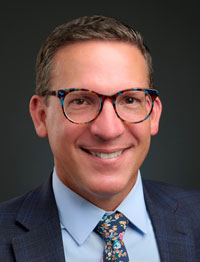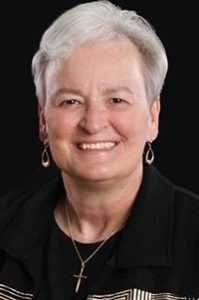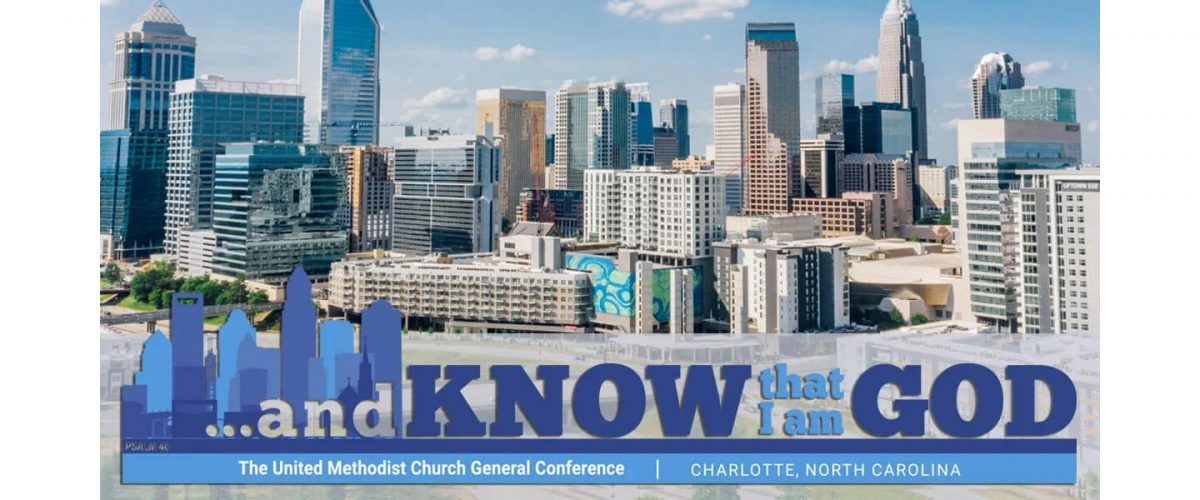As delegates pack their bags to attend The United Methodist Church’s first comprehensive General Conference in eight years, church bureaucrats and special interest groups are unpacking their respective legislative campaigns via press releases, op-eds, email, social media, videos and online events.
The thrice-delayed gathering will take place in Charlotte, N.C., beginning Tuesday, April 23.
Even the denomination’s pension agency has weighed in with support for one of the major General Conference issues, regionalization.
In an April 12 article titled “Why Wespath Supports Regionalization,” UM News reported that Wespath Benefits and Investments supports a proposal to even the playing field among U.S. and international conferences of the UMC.
“Under the proposal, the United Methodist presence in the United States and the denomination’s seven current central conferences in Africa, Europe and the Philippines would each become regional conferences with the same decision-making authority to adapt ministries to regional missional needs,” the news story explained. “At present, no structure exists to deal with concerns solely related to the United States. The result is that the increasingly international General Conference ends up being largely dominated by debates and votes on U.S. affairs — including U.S. church-employee benefit plans.”

Andrew Hendren
Regional differences in the far-flung reaches of the UMC have been key to several controversies. Wespath’s staff “see the legislation, aimed at putting the U.S. and central conferences on equal footing, as crucial to their work of supporting clergy and other church workers in retirement.”
Wespath’s top executive, Andrew Hendren, also published an op-ed in which he described the agency’s reluctance to divest fully from its holdings in fossil-fuel companies as part of a “change-from-within” strategy. Fossil-fuel divestment is likely to be a major issue coming before General Conference.
Then there’s the General Commission on Status and Role of Women, which has submitted 10 petitions seeking to shore up the UMC’s response to sexual misconduct in the church, emphasizing rapid response and protections for victims as part of its sexual ethics. A frequent target of conservative/traditionalist forces that want to do away with the agency, the commission says its priorities for the next four-year period of church programming are:
- Educating leaders about healthy boundaries and integrity in ministry
- Championing women in leadership
- Reflecting on the UMC’s communal health through monitoring gatherings
- Striving toward the eradication of sexual misconduct
Meanwhile, Reconciling Ministries Network, an unofficial organization supporting full LGBTQ inclusion in the denomination, is urging United Methodists to imagine a new denomination emerging from the 2024 session.
Executive director Jan Lawrence said in a newsletter her organization supports regionalization, the Revised Social Principles and removal of the “harmful language” of the UMC’s prohibition holding “the practice of homosexuality is incompatible with Christian teaching.”

Jan Lawrence
“But 2024 is not just about General Conference,” Lawrence wrote. “It’s an opportunity to go ahead and live into the church reimagined. The role of the Reconciling movement in that reimagined denomination is to ensure that United Methodist churches are safe, brave spaces for LGBTQ people and their allies.”
Differences of opinion about LGBTQ inclusion remain at the heart of the schism that has caused thousands of conservative U.S. churches to disaffiliate from the denomination while more progressive churches remain in a denomination that does not officially allow full inclusion.
Mainstream UMC, a centrist caucus devoted to United Methodist unity, has announced its priorities as the “three Rs”: Regionalization, Revised Social Principles and removal of the “harmful language.”
Mainstream UMC is one of the most politically active caucuses opposing the influence of traditionalist forces from Good News (officially known as The Forum for Scriptural Christianity Inc.) and the Wesleyan Covenant Association.
Mainstream UMC Executive Director Mark R. Holland cited the two groups’ General Conference strategies in a recent blog post, saying Good News has issued threats to delegates and the Wesleyan Covenant Association has called delegates who disagree with top-down disaffiliations “white supremacists.”
And then there’s the money.
The General Council on Finance and Administration has created a series of brief videos to educate delegates, observers and rank-and-file United Methodists about the denomination’s budget process.
The “Data-Driven Discernment: Charting Hope at General Conference” is “dedicated to providing … essential resources on critical financial and legal matters impacting The United Methodist Church.” The resource includes “comprehensive videos, reports, legislation updates, and more to guide informed decision-making and chart the course for our collective future.”
Also, the United Methodist Africa Forum issued a letter in four languages — English, Portuguese, French and Swahili — outlining its legislative priorities for General Conference. The caucus opposes any legislation to extend the disaffiliation process that expired Dec. 31, 2023.
The forum also advocates for regionalization; the Revised Social Principles with an amendment to define marriage as a holy covenant between a man and a woman; continued churchwide financial support of UMC-founded Africa University in Mutare, Zimbabwe, and for secular and theological educational development in Africa including the establishment of a $5 million fund spread over four years for such development; maintaining ordination standards as outlined in African versions of the Book of Discipline’s requirements.
Interested observers may follow the assembly online and through The Daily Christian Advocate’s legislation tracker.


